
Free Keyword Research Tools in 2023
What is Keyword Research?
When you do keyword research, you look up the most searched-for phrases on Google and other search engines and then tactically include those concepts in the writing to boost its position in SERPs. Analysing potential keywords is a crucial part of SEO but we can begin with Free Keyword Research Tools.
Choosing a topic for your content that centres on a group of relevant searches you want your stuff to compete for is the first step in learning how to do keyword research for SEO.
Internet surfers search using keywords. If I need new sneakers, I might search for ‘white Nike sneakers’’ keyword. Shorter and lengthy keywords exist.
If users enter keywords, businesses must conduct keyword research. Brands must undertake keyword research to learn exactly the terms potential customers use. How will people find you if you don’t know what they search for?
Keywords aren’t just searched by people. Google and other search engines will review your website’s content to locate keywords. SEO begins here.
What is the purpose of keyword research?
The products and services you promote can be gleaned from the platform’s keywords. However, search engines like Google use the quality and amount of keywords in your articles to assess where or how to place your domain on a given SERP. Continued awareness and clicks thorough rate are directly proportional to position on the search engine results page (SERP). In fact, almost 32% including all traffic on Google lead them to the best result with each search.
If you can’t get your website to the top of the search results, at least aim for the initial pages. Your page’s clickthrough rate (CTR) will increase gradually as the proportion of consumers conducting brand Google research continues to rise. The few hundred most-visited websites saw a 22% rise in visits between 2021 and 2022.
By conducting keyword research, you can zero in on the most relevant and specific search terms, anticipating your audience’s needs and meeting them before they’re even aware of them. Your website’s search engine rankings can be improved by including slightly elevated keywords in citations, blog posts, or bulleted lists.
Generating leads years after publication is possible thanks to the organic traffic from the SERP, which may surpass commercial business or promotions.
How do you create keyword research?
Furthermore, you’ll need to compile a list of keywords( using various free keyword research tools ) to aim for, based on the information you cull from your audience analysis and what you believe individuals are seeking.
You want to locate the methods and resources that facilitate your keyword research most effectively. Keywordtool.io is an alternate free keyword research tools.If you type in “spam,” for example, it will return a list of phrases that make use of that term.
You may also use Google’s search tool as a free keyword research tool, to see related search results as you write. Don’t forget to use your trusty old lexicons for further suggestions of related phrases that individuals might enter into a search engine.
You can also use tools to research the terms your competitors are targeting. Search phrases that led people to your rival companies’ sites can be uncovered with the aid of tools such as Open Site Explorer and SEMRush. If you want to find out what search phrases folks use to link to your vendor’s website, you need only insert their URL.
Your next step, after compiling a set of,” free keyword research tools” is to evaluate which ones will yield the best results. The Google AdWords Keyword Planner is one free alternative among other free keyword research tools , that can be used for this purpose.
You could use it to see how often people look for any keywords you’re considering using. The Keyword Planner will provide you with an estimate of how frequently such terms are searched for each fortnight.
As I indicated before in the post, you can also use queries as potential keyword suggestions. A client’s concern (such as “How can I check spam score?”) can serve as a jumping-off point for additional keyword ideas.
The objective is to identify essential terms that would be useful to a wide variety of people who have the same inquiry.
To illustrate, this AdWords screenshot displays results for the query “How can I check spam score?”
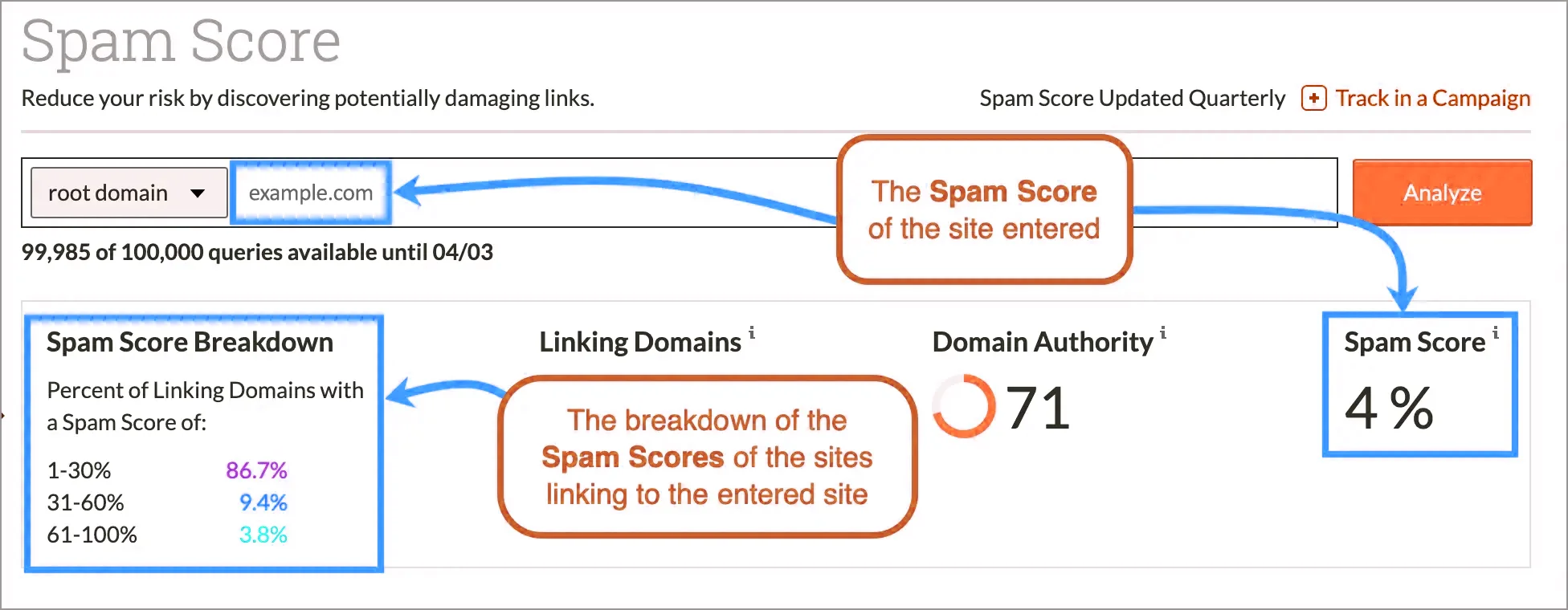
Keywords: what they are, why they’re important, and how to apply them
You can notice that some terms get a lot of searches while others get almost none. If you don’t currently have text that relates to the phrases you want to rank for, you may utilize this data to get started.
What are the types of keyword research?
It is crucial to a keyword strategy to understand the role that keyword intent plays in keyword research. While you may have an in-depth understanding of your industry, you may have a different perspective than your customer base. To comprehend keyword intent, you must
Understand the motivations behind people’s searches by putting yourself in their cleats.
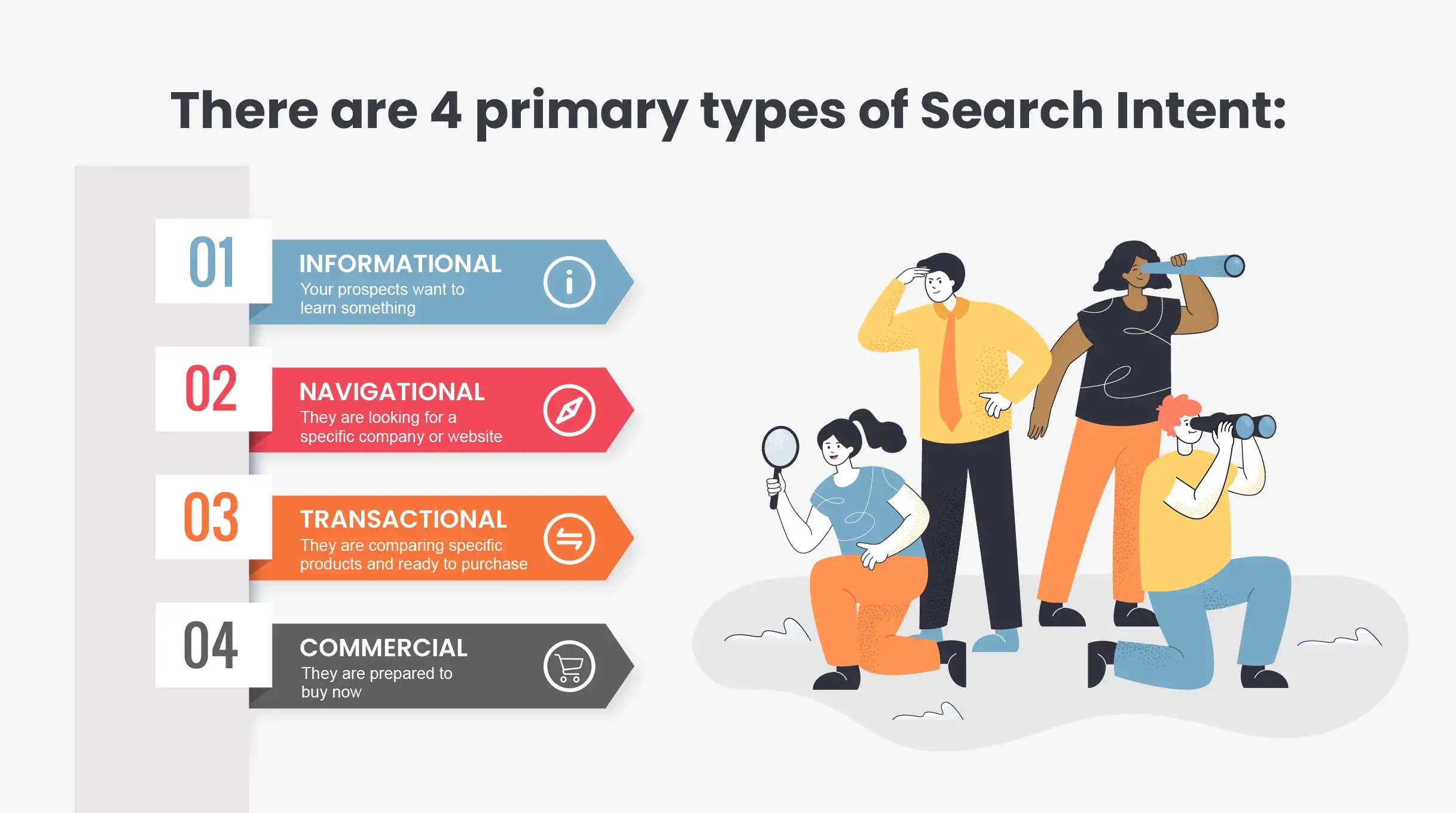
Take into account the approach to better as you initiate SEO keyword research. Is there an interest in education on their part? Is there a particular organization or web page they hope to find? Do they seem to be weighing their options and getting close to making a purchase? Do they want to wait, or are they ready to buy now? Customers who find exactly what they’re looking for are more likely to stick around, which boosts your site’s ranking in search engine results pages.
Understanding your target market and the motivations behind their wants and needs will also aid you in including trigger phrases among your long-tail keywords. Keywords should be crafted around intent-related trigger phrases. Transactional or commercial trigger words like “best”, “buy”, “join”, and “compare” are great for increasing your search engine rankings for searches where the user is more likely to have the intention to make a purchase.
How do I make a keyword search?
You’re concerned with keyword research’s core ideas and terms. Employ these steps to find keywords and create a keyword strategy.
1. List Themes
Create a spreadsheet titled “buckets.” These might be product categories or anything your audience likes.
-5-10 subjects are adequate.
-Imagining being a buyer helps.
2. Categories of natural and Eco-friendly websites:
-Environment-friendly
-Organic Health
-Cleaning non-toxic
-Aesthetics
-Healthy cooking
-Veterinarian
3. Topic-specific customer terms.
Next, consider the terms and phrases your target consumer would use to find information, products, or services.
Check your organic search traffic bucket if you have Google Analytics or Hub Spot’s Sources report.
This isn’t a definitive list of terms, but it can help with specialised research.
3.Under “Healthy environment,” list:
-Cleaners
-Cleansers
-Aromatherapy humidifier
-Paint non-toxic
-allergen-free pillows
-Naturally, reduce allergies
-Air quality
-Sage how-to Create a list for each category
-Request ideas from customer-facing peers.
4. Find synonyms
-Unique keyword addition is possible.
-Google a keyword phrase to highlight related searches.
-Click a similar search to see Google’s second-page options.
-AnswerThePublic provides 3 daily searches.
-It shows related search keywords.
-Google’s Keyword Planner and the premium tools below will show you related terms.
5. Evaluate keywords
Keyword Planner or a paid SEO tool makes this easier. Ahrefs, Semrush, Wordtracker, and Ubersuggest are popular. Ubersuggest and Wordtracker are free for outreach.
6. Keyword evaluation.
Your keyword phrase should match search phrases.
-A keyword phrase won’t help if no one uses it Search most.
-Competition? Paid tools separate organic and paid search competition. More searches, less organic competition. Exactly!
-Missed high-volume, low-competition terms?
7. Check industry rank
If you’re competing against huge brand names, use long-tail keywords.
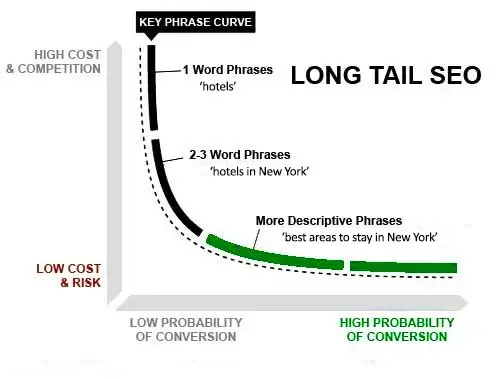
SERP displays search terms. Add long-tail keywords if it’s full of brand names with higher influence and market share than your organisation.
If your competitors don’t publish quality content. If you have longer, higher-quality, and better-designed material, you may rank higher even if they spend more on marketing.
9. Search intent
-When a consumer searches Google, they want answers to questions.
-Enter keywords to learn about your customers. Where does that term rank?
-If a buyer wants information, they’ll quickly bounce, damaging your rating. Ready-to-purchase shoppers will buy from a product page.
-Note each search phrase’s buyer intention in a spreadsheet, or confirm keyword intent before writing.
How difficult is keyword search?
Ranking on the first page of Google for a certain term is evaluated using a metric called “keyword difficulties.” A complicated keyword will necessitate more work and time before it yields any results.
What about investigating potential keywords? Simple search keywords only?
No! When deciding which keywords to target, it is important to think about how complex they are and how often they are searched for. As a result, you can weigh possibility against prestige.
To what extent do you need to know about keyword difficulty before using it, and how exactly do you do so?
The difficulty of a keyword has an effect on both strategy and resource allocation. With this knowledge, you can improve your site’s content by focusing on the most relevant keywords.
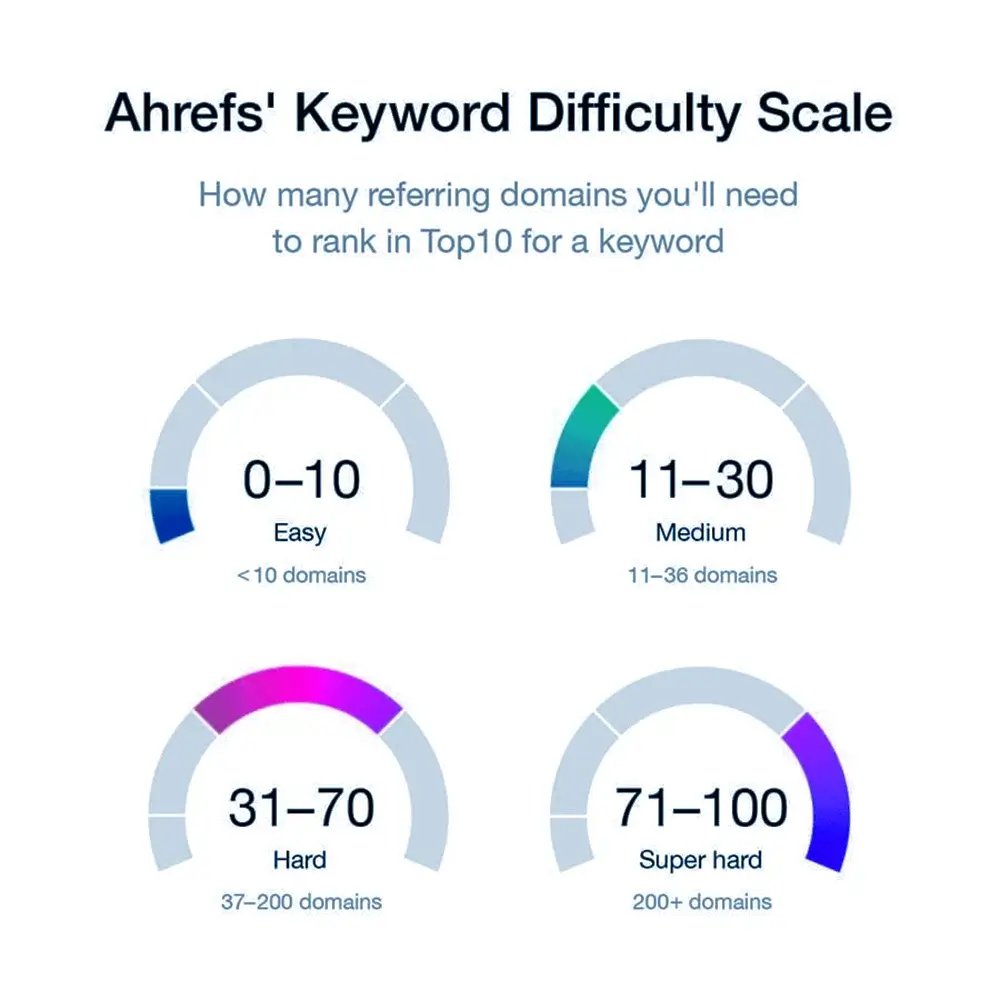
If you’re looking for a high-volume, relevant term to use in your blog, “project management” can be an option. You’re giving it out without thinking about potential obstacles.
When it comes to search results, how high does your post rank? For starters, you’ll require a lot of help. You won’t be able to figure out how to rank for that keyword until you know how challenging that task is.
The competitiveness of a keyword list might be used to help a fresh page rise in the search engine rankings. You can utilise this information for strategic content and resource planning.
Just how difficult would it be to find a keyword? Variables can be:
1.Domain authority Inbound links
2.Quality of content
What helps in making a good keyword?
Using the right keywords is vital for search engine optimization (SEO). Finding and attracting your target demographic is essential if you want to see an uptick in website visits. It’s important to spend time and effort researching the ideal keywords to use when marketing to a specific demographic.
Top 5 Guidelines for Selecting Keywords
Prioritise the needs of your clients first and foremost.
Use customer intent to inform your preliminary keyword list. What search terms would you use on Google to locate these offerings? You can also survey your existing clientele and see what terms people use to find products similar to yours.
Conduct competitor analysis
You can learn what keywords your peers are targeting by visiting their websites. You can detect their keywords by reading the content and meta tags. It can be helpful to examine the keywords used by your competitors so that you can fill in any gaps and broaden your own.
Master long-tail keywords.
Three-word or longer keyword phrases are known as long-tail keywords. Smaller search volumes for long-tail keywords indicate more relevance, lower competition, and less difficulty in achieving a high page rank. Using long-tail keywords can aid in defining your offering.
Use keyword research instruments
Searching for keywords with the aid of Google Ads’ keyword tool is a great option. It is possible to get data on search volume, trends, competitiveness, and more with the use of tools like SEMRUSH and Raven tools.
Analysis of Outcomes
Once you’ve selected your keywords, keep an eye on the stats and see what you can learn. Competitors often make use of popular terms or phrases.
Never forget the power of keywords! Put keywords in your blog articles, social media, metatags, and website content. Including more keywords in your content will improve its discoverability.
Best keyword search tools
Google Keyword Planner for researching paid keywords
Use of Semrush by Experienced SEO Experts
Database of Questions for Question-Related Keyword Research
Advertisers who use affiliate programmes will find Jaaxy to be indispensable.
Check out Keyword Surfer, an add-on for your browser that does free SEO keyword research.
Keyword research SEO
First, list business-related themes.
Start by teeming your keywords. You’ll establish business-critical topic categories to produce keywords.
These are popular blog topics. They’re frequent sales topics. What would your buyer personas search for? HubSpot, a marketing software company (with outstanding SEO), might have topic buckets like:
“inbound” (21K)
“blogging” (19K)
“e-marketing” (30K)
“SEO” (214K)
“marketing” (6.2K)
not duplicate Searches monthly. This data lets you know how important these topics are to your audience and how many subtopics to cover. Subtopics of Step 2
Step 2: Keyword-fill containers.
After creating topic buckets, find keywords. Your target consumer searches for these keyword phrases, thus you want to rank for them in SERPs.
If “marketing automation” was the last topic bucket for an inbound marketing startup, I’d brainstorm keywords. Examples:
-Marketing software automation
-Automation marketing.
-Is marketing automation necessary?
Business Nurturing
-Automated email marketing
-Repeat. This isn’t the final keyword list. You need a list of search terms for that topic bucket. We’ll shorten the list.
-Although Google encrypts new keywords every day, you might obtain keyword suggestions by examining your website’s current keywords. Use Google Analytics or -Traffic Analytics’ Sources report. Search your website’s organic search and traffic sources for keywords.
-As needed, repeat. Ask your Sales or Service colleagues what terms or questions their prospects and customers use. This is good keyword research.
-HubSpot uses Search Insights. This template helps you cluster keywords, analyse MSV, and plan your editorial calendar.
-Search Insights Report Template
Step 3: Analyse keyword intent
-Google’s ranking algorithm now considers user intent. Today, solving a searcher’s problem is more important than having the keyword. This impacts keyword research.
-Keywords often have numerous meanings. Due to search intent, you must carefully analyse keywords.
-Article topic: “how to create a blog.” The searcher’s intent will determine your blog’s content. Blog post? Or start a blog? Ensure the keyword’s intent if your content strategy targets the latter.
-To verify a user’s word, search for it. Check Google’s material for inspiration.
Step 4: Search keywords.
Keyword research is creative. Otherwise, it fills lists.
-Look at Google’s relevant search terms for keyword ideas. Google suggests searches when you type a term and scroll down. These keywords can inspire more.
-Google search ideas for “cute pups”
-Bonus? Check your search terms with free keyword research tools.
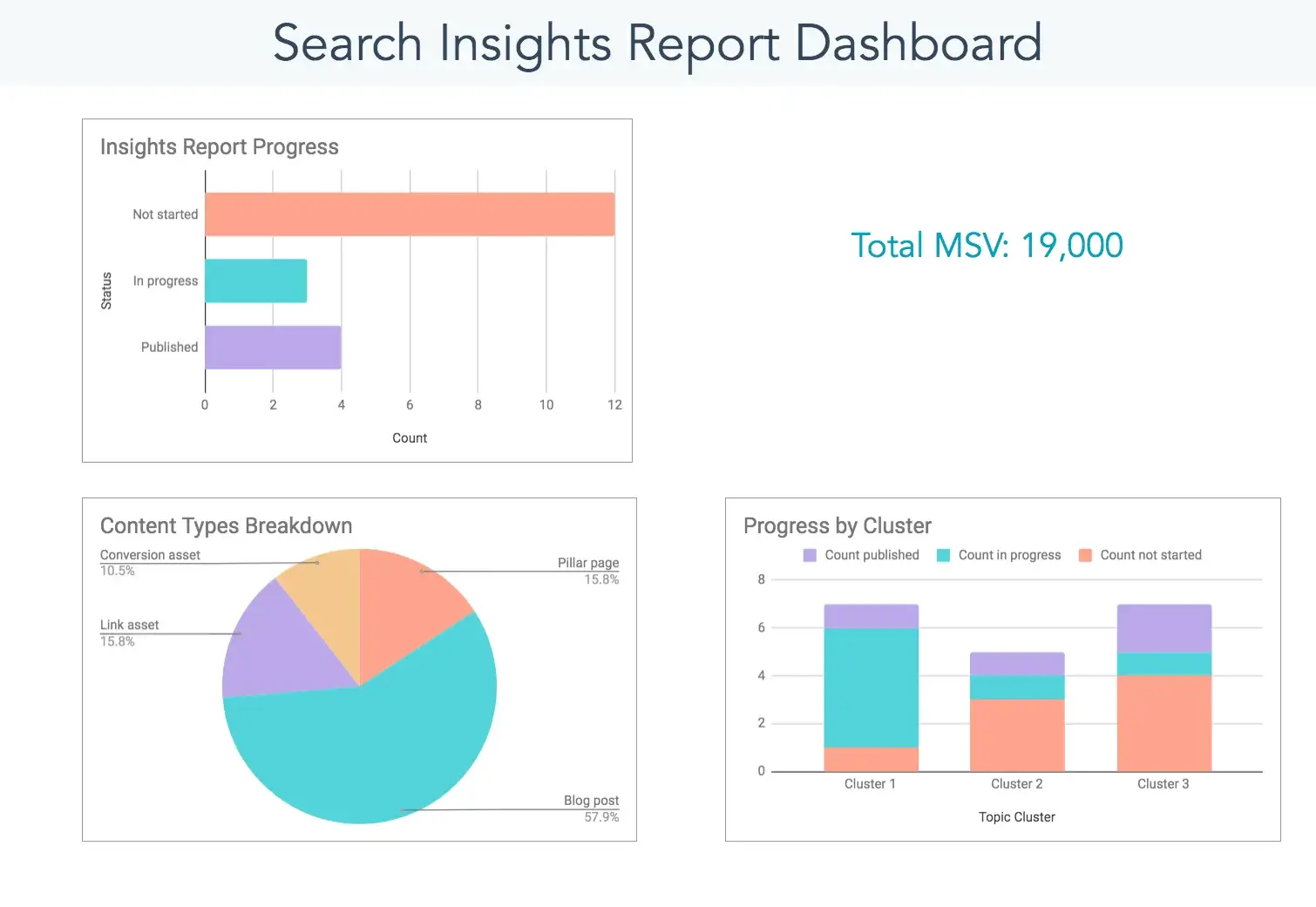
Using free keyword research tools
Exact match and phrase match keywords will help you locate more keyword suggestions. They include:
-Ubersuggest Keyword Planner
-Moz
-KeywordTool.io
Free keyword research tools
-Moz Keyword Explorer
-Ubersuggest
-Semrush
-Google Adword key Planner
Last but not least
Writing about search engine consumers’ interests is crucial. Look at the search phrases generating visits to your competitors’ websites to start your free keyword research tools. Professional keyword research tools can create millions of ideas using your seed keywords by using multiple paid or free keyword research tools.
The amount of times a keyword is typed shows its popularity (check “free keyword research tools” in this blog). Traffic Potential shows how many people may visit your site if you rank highly for that phrase.
Using Keyword Difficulty, you may estimate how many incoming links you require for a specific keyword by using paid or free keyword research tools mentioned in this article above. “How to rank #1 on Google” can’t be answered with this two-digit figure.”
Know if the keywords you’re targeting relate to the same topic and may be addressed on a single page. If they need distinct sections.
Researching the intent behind each keyword search will inform your page’s content.
The business potential score helps sort keywords. It measures how easy it is to promote in keyword-optimised articles.
Still puzzled about targeting your service or brand? We’ll coach you to success. Support@ommune.com